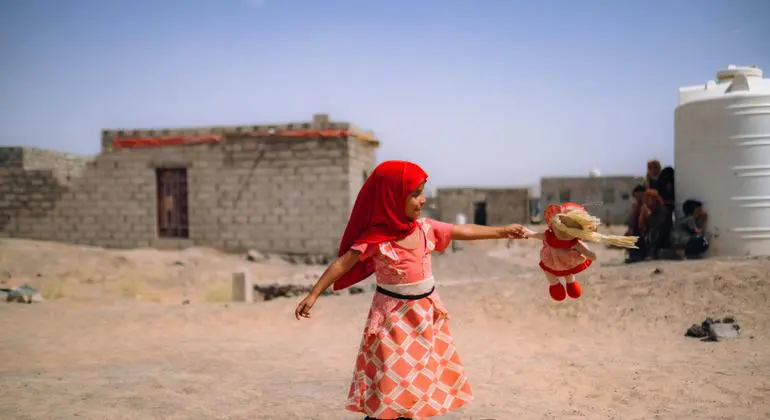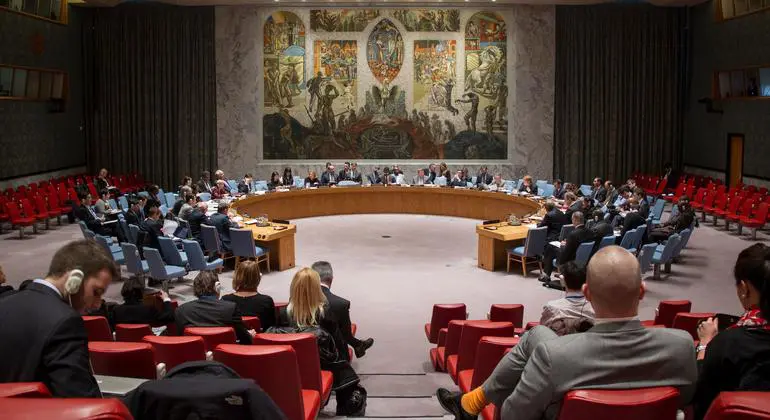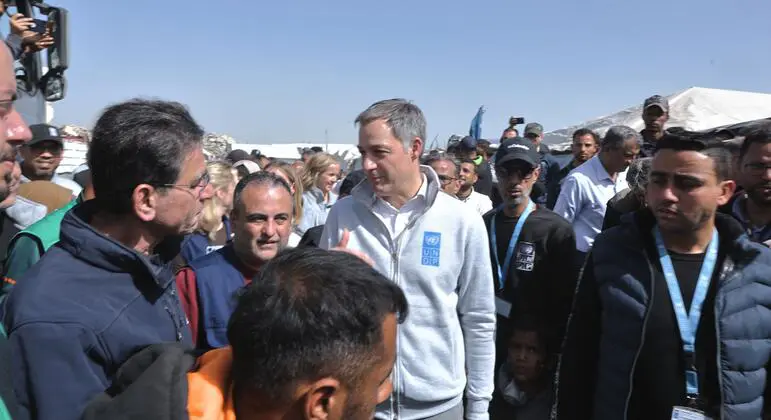Nine years of war have left over half the population – 18.2 million people, mainly women and children – in need of assistance and protection services.
The humanitarian response in Yemen is among the largest in the world, yet a $2.7 billion plan for the country has received just $435 million to date.
Lifesaving aid at risk
“Underfunding poses a challenge to the continuity of humanitarian programming, causing delays, reductions and suspensions of lifesaving assistance programmes,” the partners said.
Some 190 humanitarian organisations issued the statement on the eve of a major conference on Yemen, known as the Sixth Senior Officials Meeting, to be held in Brussels, which they said will be “a critical moment to galvanise support and collective action to address the deteriorating crisis”.
Yemeni Government forces, backed by a Saudi-led coalition, have been battling Houthi rebels which hold much of the country, since 2014. The war in Gaza has further compounded the situation, as the Houthis have been attacking ships in the Red Sea, affecting global maritime trade.
‘At a crossroads’
“Today, Yemen is at a crossroads,” the partners said. They noted that humanitarian conditions slightly improved following the UN-brokered truce in April 2022 and its de facto continuation, allowing them to move towards resilience-building programming, promoting sustainable solutions by addressing the drivers of needs.
“However, we cannot ignore the significant humanitarian needs that remain and that cannot be addressed without adequate funding to respond,” they added.
Humanitarian needs continue to be driven by economic decline, deteriorating public services and infrastructure, displacement and climate-related disasters.
Inaction would be ‘catastrophic’
Other threats include rising food insecurity, which risks increasing malnutrition rates, particularly among pregnant and lactating women, older people and children, as well as the spread of cholera during the current rainy season.
“Violations of international humanitarian law and international human rights law continue, and the presence of explosive remnants of war results in death, injury and displacement, restricts access to agricultural land and resettlement and hinders post-conflict reconstruction and development efforts,” they added.
The partners underscored their commitment to continue to improve the quality of humanitarian assistance and maximise impact and to expand collaboration and promote more Yemeni leadership in the response.
“To do so, however, humanitarian partners’ sustained support is required,” they said, warning that “inaction would have catastrophic consequences for the lives of Yemeni women, children and men.”







